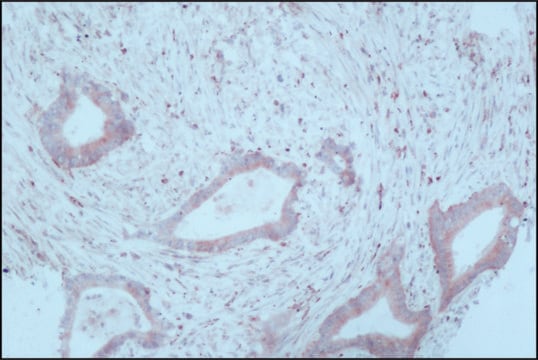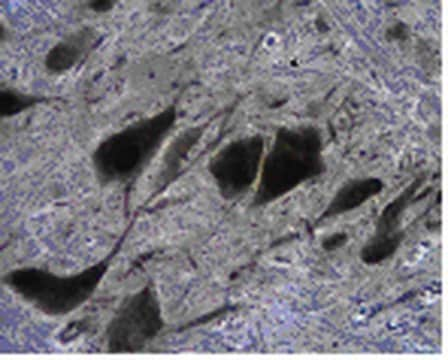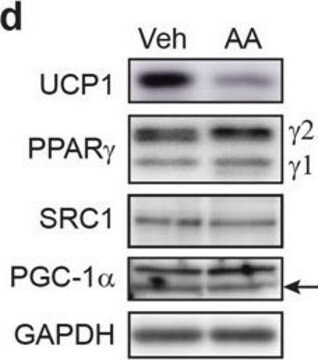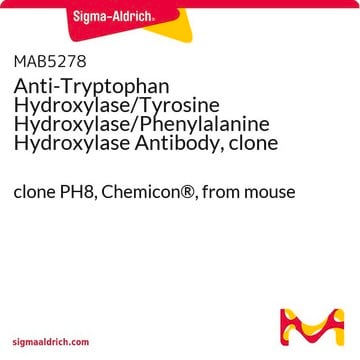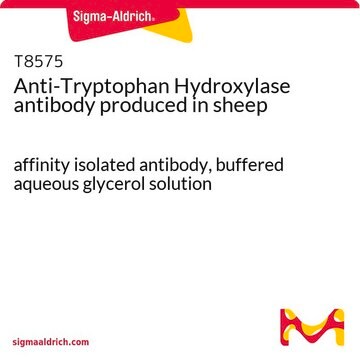SAB4200723
Anti-Tryptophan Hydroxylase antibody, Mouse monoclonal
clone WH-3, purified from hybridoma cell culture
Synonyme(s) :
Anti-TPH, Anti-TpOH
About This Item
Produits recommandés
Source biologique
mouse
Forme d'anticorps
purified from hybridoma cell culture
Type de produit anticorps
primary antibodies
Clone
WH-3, monoclonal
Forme
buffered aqueous solution
Poids mol.
antigen ~55 kDa
Espèces réactives
mouse, human, rabbit, sheep, rat
Concentration
~1.0 mg/mL
Technique(s)
immunoblotting: 2-4 μg/mL using rabbit pineal gland lysate
immunofluorescence: suitable
immunohistochemistry: suitable
Isotype
IgG3
Conditions d'expédition
dry ice
Température de stockage
−20°C
Modification post-traductionnelle de la cible
unmodified
Catégories apparentées
Description générale
Immunogène
Application
- immunoblotting
- immunohistochemistry
- immunofluorescence
Actions biochimiques/physiologiques
Forme physique
Clause de non-responsabilité
Vous ne trouvez pas le bon produit ?
Essayez notre Outil de sélection de produits.
Code de la classe de stockage
12 - Non Combustible Liquids
Classe de danger pour l'eau (WGK)
nwg
Point d'éclair (°F)
Not applicable
Point d'éclair (°C)
Not applicable
Certificats d'analyse (COA)
Recherchez un Certificats d'analyse (COA) en saisissant le numéro de lot du produit. Les numéros de lot figurent sur l'étiquette du produit après les mots "Lot" ou "Batch".
Déjà en possession de ce produit ?
Retrouvez la documentation relative aux produits que vous avez récemment achetés dans la Bibliothèque de documents.
Notre équipe de scientifiques dispose d'une expérience dans tous les secteurs de la recherche, notamment en sciences de la vie, science des matériaux, synthèse chimique, chromatographie, analyse et dans de nombreux autres domaines..
Contacter notre Service technique